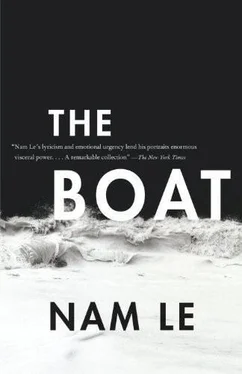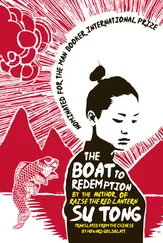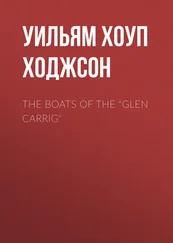"The world is hard," he said. For a moment I was uncertain whether he was speaking in proverbs. He looked at me, his face a gleaming mask. "Just say yes, and we can forget everything. That's all. Just say it: Yes."
But I didn't say it. Not that day, nor the next, nor any day for almost a year. When I did, though, rehabilitated and fixed in new privacies, he was true to his word and never spoke of the matter. In fact, after I came back home he never spoke of anything much at all, and it was under this learned silence that the three of us — my father, my mother, and I, living again under a single roof — were conducted irreparably into our separate lives.
***
THE APARTMENT SMELLED of fried garlic and sesame oil when I returned. My father was sitting on the living room floor, on the special mattress he had brought over with him. It was made of white foam. He told me it was for his back. "There's some stir-fry in the kitchen."
"Thanks."
"I read your story this morning," he said, "while you were still sleeping." Something in my stomach folded over. I hadn't thought to hide the pages. "There are mistakes in it."
"You read it?"
"There were mistakes in your last story too."
My last story. I remembered my mother's phone call at the time: my father, unemployed and living alone in Sydney, had started sending long emails to friends from his past — friends from thirty, forty years ago. I should talk to him more often, she'd said. I'd sent him my refugee story. He hadn't responded. Now, as I came out of the kitchen with a heaped plate of stir-fry, I tried to recall those sections where I'd been sloppy with research. Maybe the scene in Rach Gia — before they reached the boat. I scooped up a forkful of marinated tofu, cashews, and chickpeas. He'd gone shopping. "They're stories ," I said, chewing casually. "Fiction."
He paused for a moment, then said, "Okay, Son."
For so long my diet had consisted of chips and noodles and pizzas I'd forgotten how much I missed home cooking. As I ate, he stretched on his white mat.
"How's your back?"
"I had a CAT scan," he said. "There's nerve fluid leaking between my vertebrae." He smiled his long-suffering smile, right leg twisted across his left hip. "I brought the scans to show you."
"Does it hurt, Ba?"
"It hurts." He chuckled briefly, as though the whole matter were a joke. "But what can I do? I can only accept it."
"Can't they operate?"
I felt myself losing interest. I was a bad son. He'd separated from my mother when I started law school and ever since then he'd brought up his back pains so often — always couched in Buddhist tenets of suffering and acceptance — that the cold, hard part of me suspected he was exaggerating, to solicit and then gently rebuke my concern. He did this. He'd forced me to take karate lessons until I was sixteen; then, during one of our final arguments, he came at me and I found myself in fighting stance. He had smiled at my horror. "That's right," he'd said. We were locked in all the intricate ways of guilt. It took all the time we had to realize that everything we faced, we faced for the other as well.
"I want to talk with you," I said.
"You grow old, your body breaks down," he said.
"No, I mean for the story."
"Talk?"
"Yes."
"About what?" He seemed amused.
"About my mistakes," I said.
***
IF YOU ASK ME WHY I CAME TO IOWA, I would say that I was a lawyer and I was no lawyer. Every twenty-four hours I woke up at the smoggiest time of morning and commuted — bus, tram, elevator, without saying a single word, wearing clothes that chafed and holding a flat white in a white cup — to my windowless office in the tallest, most glass-covered building in Melbourne. Time was broken down into six-minute units, friends allotted eight-unit lunch breaks. I hated what I was doing and I hated that I was good at it. Mostly, I hated knowing it was my job that made my father proud of me. When I told him I was quitting and going to Iowa to be a writer, he said, " Trau buoc ghet trau an. " The captive buffalo hates the free buffalo. But by that time he had no more control over my life. I was twenty-five years old.
The thing is not to write what no one else could have written, but to write what only you could have written . I recently found this fragment in one of my old notebooks. The person who wrote that couldn't have known what would happen: how time can hold itself against you, how a voice hollows, how words you once loved can wither on the page.
"Why do you want to write this story?" my father asked me.
"It's a good story."
"But there are so many things you could write about."
"This is important, Ba. It's important that people know."
"You want their pity."
I didn't know whether it was a question. I was offended. "I want them to remember," I said.
He was silent for a long time. Then he said, "Only you'll remember. I'll remember. They will read and clap their hands and forget." For once, he was not smiling. "Sometimes it's better to forget, no?"
"I'll write it anyway," I said. It came back to me — how I'd felt at the typewriter the previous night. A thought leapt into my mind: "If I write a true story," I told my father, "I'll have a better chance of selling it."
He looked at me a while, searchingly, seeing something in my face as though for the first time. Finally he said, in a measured voice, "I'll tell you." For a moment he receded into thought. "But believe me, it's not something you'll be able to write." "I'll write it anyway," I repeated.
Then he did something unexpected. His face opened up and he began to laugh, without self-pity or slyness, laughing in full-bodied breaths. I was shocked. I hadn't heard him laugh like this for as long as I could remember. Without fully knowing why, I started laughing too. His throat was humming in Vietnamese, "Yes. . yes. . yes," his eyes shining, smiling. "All right. All right. But tomorrow."
"But — "
"I need to think," he said. He shook his head, then said under his breath, "My son a writer. Co thuc moi vuc duoc dao ." How far does an empty stomach drag you?
" Mot nguoi lam quan, ca ho duoc nho ," I retorted. A scholar is a blessing for all his relatives. He looked at me in surprise before laughing again and nodding vigorously. I'd been saving that one up for years.
***
AFTERNOON. We sat across from one another at the dining room table: I asked questions and took notes on a yellow legal pad; he talked. He talked about his childhood, his family. He talked about My Lai. At this point, he stopped.
"You won't offer your father some of that?"
"What?"
"Heavens, you think you can hide liquor of that quality?"
The afternoon light came through the window and held his body in a silver square, slowly sinking toward his feet, dimming, as he talked. I refilled our glasses. He talked above the peak-hour traffic on the streets, its rinse of noise; he talked deep into evening. When the phone rang the second time I unplugged it from the jack. He told me how he'd been conscripted into the South Vietnamese army.
"After what the Americans did? How could you fight on their side?"
"I had nothing but hate in me," he said, "but I had enough for everyone." He paused on the word hate like a father saying it before his infant child for the first time, trying the child's knowledge, testing what was inherent in the word and what learned.
He told me about the war. He told me about meeting my mother. The wedding. Then the fall of Saigon. 1975. He told me about his imprisonment in reeducation camp, the forced confessions, the indoctrinations, the starvations. The daily labor that ruined his back. The casual killings. He told me about the tiger-cage cells and connex boxes, the different names for different forms of torture: the honda, the airplane, the auto. "They tie you by your thumbs, one arm over the shoulder, the other pulled around the front of the body. Or they stretch out your legs and tie your middle fingers to your big toes — "
Читать дальше











